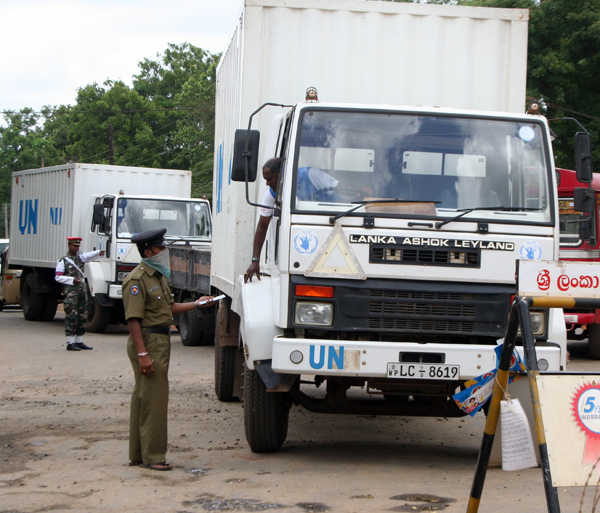UN and other humanitarian agencies operating in areas under the control of the Liberation Tigers of Tamil Eelam (LTTE) in the north will relocate staff and assets to government-controlled areas following a state directive.
The Sri Lankan government instructed humanitarian organisations working in the central-north area, known as the Vanni and under Tamil Tiger control, to relocate due to security concerns.
“Secretary to the Ministry of Defence, Public Security, Law and Order has advised in his letter dated 05/09/2008 and numbered SMOD/320/DEM/GEN(45), to inform all the NGOs registered in this office that no expatriate/employee or any other person employed by an NGO and working in the Vanni will be permitted to travel beyond the Omanthai checkpoint, in consideration of prevailing security situation,” the NGO secretariat of the government said in a letter to humanitarian agencies.
Following the directive and the announcement by the government that it could not guarantee security for aid workers, the UN said relocation would commence this week.
“The UN is now evaluating its operations in the area with a view to relocating humanitarian staff. A precise timetable for the complete withdrawal of all staff has yet to be determined, but relocations will begin this week,” it said in a statement on 9 September.
The letter also instructed agencies working in the Vanni to “withdraw/remove all the assets (vehicles, machinery and equipment) and all employees who are not permanent residents in Vanni, with immediate effect”.
There are at least 160,000 IDPs in the two districts of Mulaitivu and Kilinochchi under Tiger control, according a situation report by the Inter-Agency Standing Committee released on 8 September. Heavy fighting in the southwestern parts of the Vanni has forced more than 70,000 people to flee their homes in the past two months. Food supplies provided by the World Food Programme benefited at least 149,000 people in the two districts, the IASC said.
Humanitarian impact
The relocation to Vavuniya, the closest government-controlled town to the Vanni, is likely to affect the humanitarian effort, UN spokesman Gordon Weiss told IRIN.
 Photo: Amantha Perera/IRIN  |
| The Omanthai entry/exit point |
Jeevan Thiyagaraja, executive director of the Consortium of Humanitarian Agencies (CHA), a national umbrella body, said the relocation of staff and assets would delay ongoing relief work.
He said supplies to the Vanni after the relocation would be transported only with government approval.
“Essentially the supplies will be moved through Government Agents’ convoys to Kilinochchi and Mulaitivu [from Vavuniya].”
There are 11 UN and other agencies working in the Vanni, according to CHA.
The International Committee of the Red Cross (ICRC), which has observers at the Omanthai entry/exit point connecting the Vanni to areas in the south, said it would continue to function in areas under the control of the Tigers.
Aleksandra Matijevic, ICRC communications coordinator, told IRIN: “We will continue with our assistance to the displaced and with dialogue with all parties to ensure the safety and protection of non-combatants.”
However, CHA’s Thiyagaraja said that as fighting intensified in the Vanni, it would become increasingly dangerous. “From a security standpoint it has become very dangerous for the NGOs. For the civilians, moving away from direct conflict is now a necessity.”
ap/bj/mw
This article was produced by IRIN News while it was part of the United Nations Office for the Coordination of Humanitarian Affairs. Please send queries on copyright or liability to the UN. For more information: https://shop.un.org/rights-permissions





